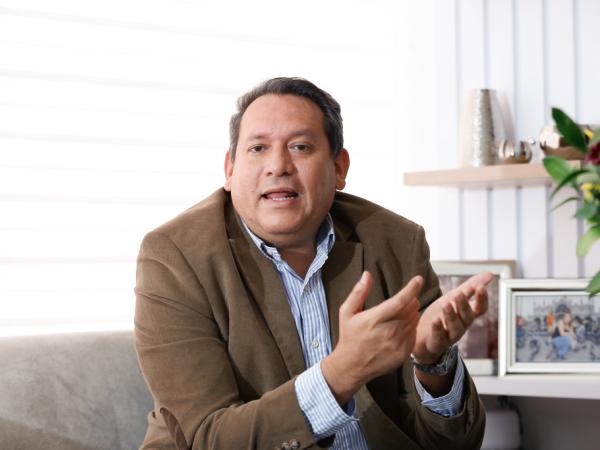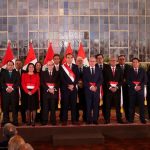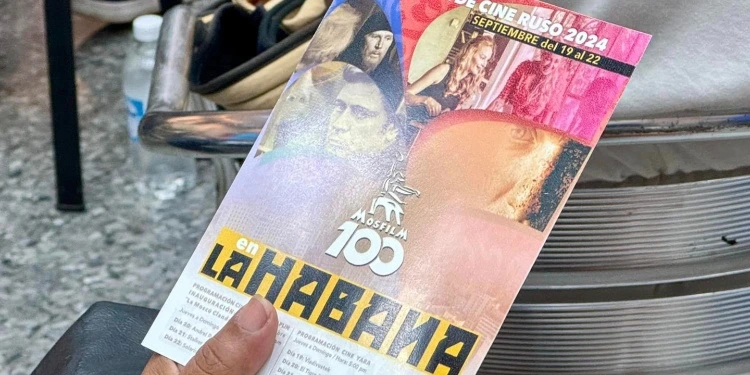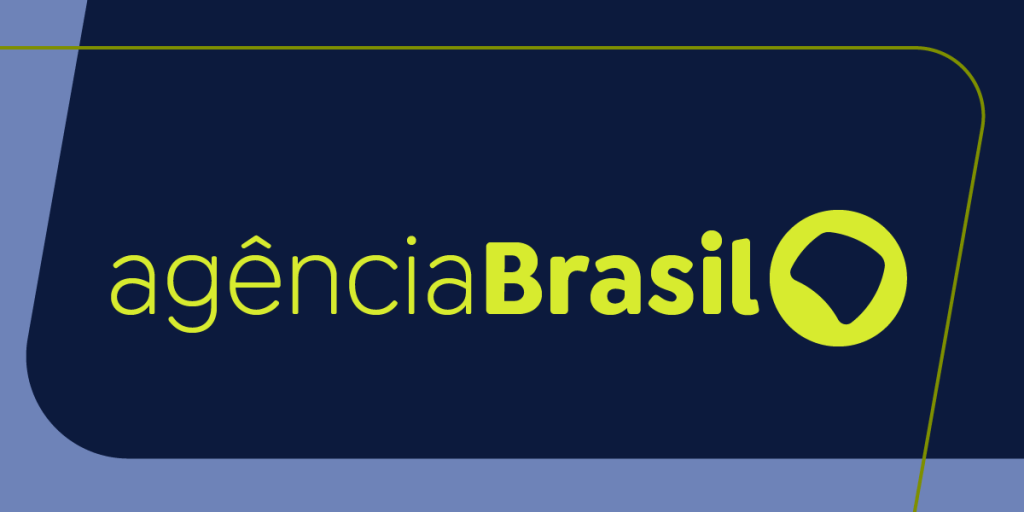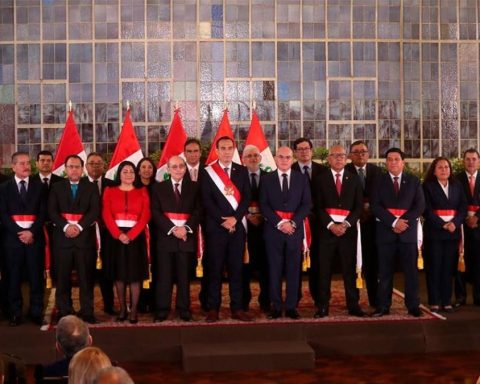Concern about what young people want in terms of education motivated a group of parents to create a platform that has as its sole objective connect the educational ecosystem so that students can make informed decisions about the professional training they want for their future performance.
(Read: Star Education is going for $5,000 million)
José Navarro, director of strategic planning at Guía Universitaria, explained how this platform works and the focus on vocational guidance talks, considering that the career change rate is already above 40%.
How does the model work?
We go to schools and give talks on vocational guidance. We see the process of students who want to do a career a bit apathetic. test vocational. Sometimes they even lie when it is very tedious. We have tried, through self-knowledge, to get them to discover themselves, to see what motivates them and we try to make that process backwards. We invite them to see themselves in the future, in five or 10 years. We guide them to draw up a route to reach that goal.
We have had people who want to be entrepreneurs and we invite them to see what area they want to be in. Or perhaps if they want to be president of Ecopetrol, we give them the necessary tools to choose a career in line with that objective.
(See more: No longer an option? Australia’s restrictions on foreign students)
Do you have your own ‘test’?
We designed a vocational test, since many of our collaborators are psychologists and have been guiding all the students. They designed a short and simple questionnaire that shows not only the area, but also the careers they can explore throughout the process.
We have visited more than 11 schools, reaching more than 500 students, which is obviously a difficult and complicated task, because it has always been done with our own resources.
(Read also: How chess can help tackle the educational gap in Latin America)
Education
iStock
Do you have alliances with companies?
We have the support of a media agency called Efectodirecto. We have Google, which is supporting us through the foundation, also Redincol and we are requesting support from Apple. We work with Flips, the cereal brand, which is very targeted at these kids and the receptivity has been fantastic. Everyone is committed to this educational ecosystem.
(See: Argentine Senate approves law to improve funding for public universities)
What challenges do you identify for universities?
We have studied some worrying figures, not only for the school or university, but for the State. 40% of students, once they enter university, change their major, and that is dramatic. When we go to schools, we do a super interesting activity, totally interactive, with platforms that also support us and give us certain very important data, for example, 60% know what they want to study, but 40% of them are not sure what their major is.
The economic aspect is also important. We met a young man who is studying chemical engineering at La Nacional, and hopes to earn $2.5 million once he graduates. This aspect is leading them to a need for work at a very early age and that is why it is important to analyze what young people want today.
(Read more: Does graduating from university guarantee employment? The OECD questions this)
What has changed for you?
Our process began as a foundation and then another collaborating father came along and saw a business opportunity. There we integrated the other part of the ecosystem. Our job is to make it possible to compare all the universities that offer the degree that students are looking for in one place. We simplify the search through a channel to compare location, time and price. The most common fears are job uncertainty, cost and return on investment.

Education
iStock
Do you have other lines of business?
Another arm that we have within the foundation is this part of analytics that we can sell to universities so that they can analyze what their market niche is. An example is that if a degree is offered and it is taught by five universities, what motivates that student to choose one of those five options?
In five years, the dropout rate has doubled, according to a source from the Ministry of Education. It is currently 25%, but no one talks about changing majors, which exceeds 40%. We have visited universities where 40% have changed majors and 70% are thinking of doing so.
(See more: Should schools in Colombia start classes later? This is what the experts say)
With this data, what strategies do you give universities to find students?
Universities have a challenge and that is that they are competing. It is a competition for recruitment. This happens a lot in the ‘high-end’ universities, because the prices are very similar. Universities have many profiles, but different for each degree.
That’s why the guidance we give to kids at school is so important. Seeing where they want to be and where they want to go, whether their dream is a company or not. That’s the big challenge all universities have: what they offer and the people who offer it. We offer you an analysis so you can see who you compare yourself to.
All the artificial intelligence we apply is for this purpose. We offer universities a competitive analysis so that they can take action and incorporate it into their marketing or recruitment processes.
(Read: Public schools must respect the principle of religious neutrality)

Education
iStock
What are the most interesting careers?
The most sought-after careers by students are medicine, business administration, mechanical engineering, which is in high demand, and systems engineering. I believe that Data science is going to be the ‘boom’ in the next 5 or 10 yearswith an integration with artificial intelligence. That will truly be the future of many young people, because education is changing, thanks to the fact that the world is changing as well.
(See: How to strengthen mental health in classrooms and educational environments?)
Do you only work in Colombia?
We are currently only working in Colombia, but we already have a couple of contacts in two countries that are already interested in our technology. One of them is Ecuador.
How does the teacher line work?
We have a profile for teachers, which is like a Linkedin, but exclusively for teachers.
On our platform, if you want to be a professor at a university or be on the radar of one of them, you can register for free, uploading your resume for the university, the director of the program or any professor who wants to contact you as a guest. This is a recruitment process. There are already more than 100 professors subscribed.
We offer universities not only the analytics part, but they also have access to a database of potential teachers that they can contact. Our responsibility is simply to connect the entire educational ecosystem.
(Read also: The project that seeks to provide free menstrual care supplies is moving forward)

Education
iStock
How does the credit part work?
We connect all these institutions with financial institutions or entities that provide educational loans. There are many, including banks and Icetex, among others. We offer this section, which is free, where students can enter, choose the institution they want and find contact information.
(See more: Areandina achieves recognition for its academic programs in the U.S.)
What do you plan for the future?
We would love to receive support from a banking institution. We receive everything from small donations to scholarships for students, and it also applies to companies that are interested in supporting this part of education. Our job is to connect students, regardless of their social class, so that they can study what they want, where they want. It is something gratifying for us that moves us and motivates us. That is our goal, and our path.
We dream of banking institutions calling us and approving a donation. Investment in education is essential, because it is training the next generation. We invite all companies to do their bit for education.
(Read: Will the National Agreement on Higher Education solve the lack of funding?)

Education
iStock
How is the connection with companies?
We are also connecting companies with universities through our platform. For example, we can tell the university that there are people looking for a course. This is especially for continuing education.
I can also tell the company, only if they register, that X number of employees are looking for a course, a training, a specialization, etc. In that case, we introduce the university that offers that course and connect them. We have the data of who generates the demand and who gives the offer.
(See more: How is Colombia doing in terms of progress against child labor?)
How do you see the public aspect?
The great challenge is that school enrollment rates are so low that it is alarming. We need to do a comprehensive study on what the country needs. There are countries that encourage and the State subsidizes many students to prepare themselves.
What does Colombia need today? More engineers? More doctors? More nurses? Administrators? Lawyers? That is the big question that the State must ask itself.
We have had meetings with the Secretariat and the Ministry of Education, seeking this support. We are making an appeal because we want to reach many district schools that we cannot reach. Our activity is free. If you wish to make a donation, you are welcome, but it is important to make this movement in favor of education massive. Because a country without education, unfortunately, will not achieve the goals we are setting for the future.
(Read: In Colombia, 769 private schools have closed in the last year and a half. Why?)
